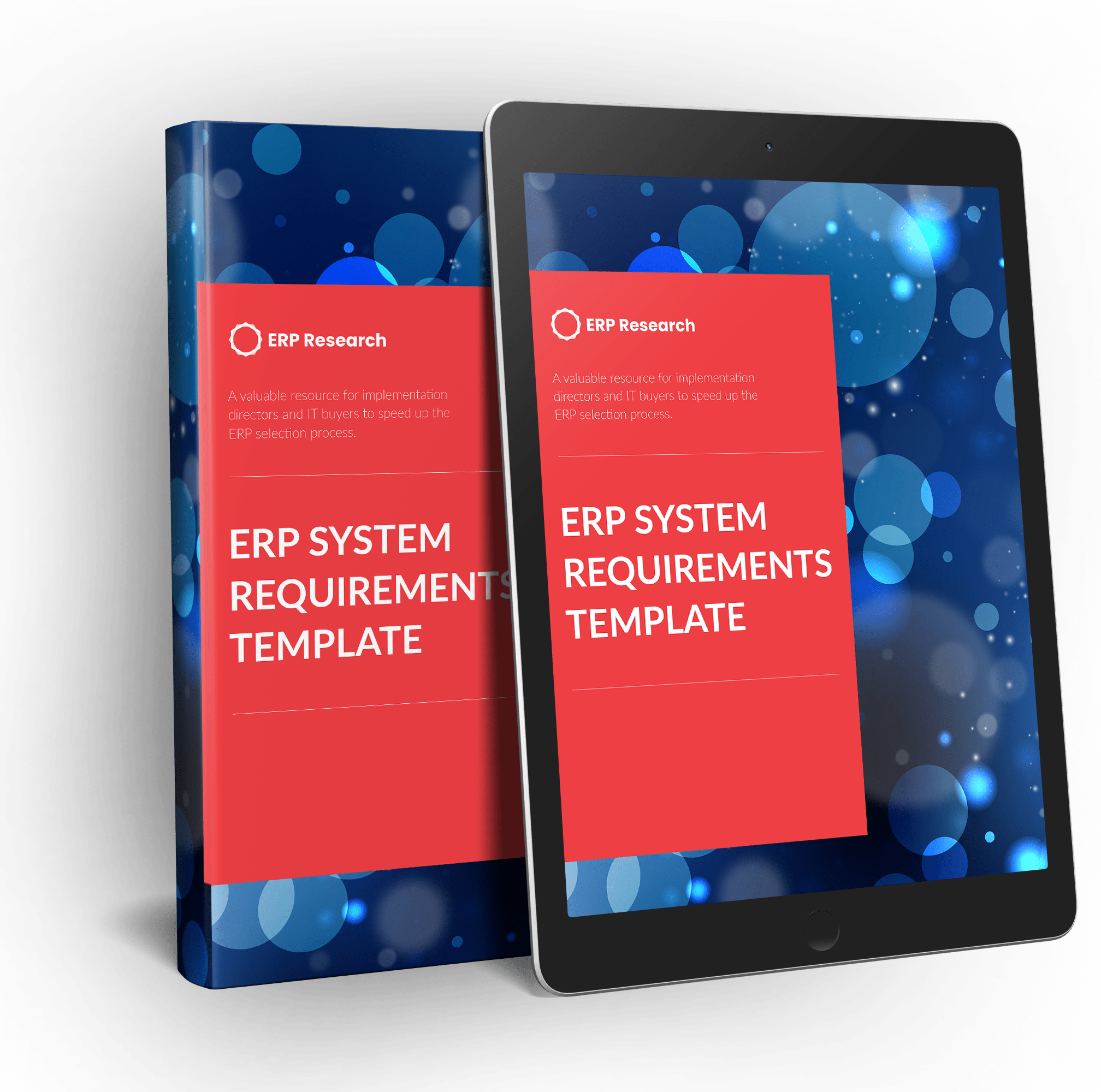Download Functional ERP Requirements Template:
Enter correct contact details as it will be sent to your inbox.

What is an Erp functional requirements Gathering Checklist?
An Erp functional requirements list, ERP RFI & RFP template or ERP selection template (as it is widely known) is a document which catalogues the requirements for an ERP project. The ERP template is used during request for information (RFI) and request for proposal (RFP) interactions between organisations and ERP suppliers.
The document outlines ERP vendor selection criterias and specifies the features and functions that a company needs it's enterprise resource planning solution to cover. It also acts as an ERP evaluation template and includes information on other topics that are important for an ERP evaluation, including data security, integration and user experience. The Erp functional requirements specification document should also provide an area for potential solution providers to give feedback on the functionality their solution provides including functionality, implementation, license and services costs.
We recommend that your ERP business requirements template provides as much detail as possible to potential ERP suppliers and vendors, so that they can accurately respond. It's also important that you have internal agreement amongst your ERP project team on what the Erp functional requirements template is asking for.
What is an ERP functional requirements document?
An ERP functional requirements document is used to gather the modules and features a business needs from an ERP system. These documents are typically used when an ERP transformation or evaluation process is happening. An ERP functional requirements document is typically distributed to ERP software vendors and partners.
What is an Erp functional requirements Template?
An Erp functional requirements list, ERP RFI template or ERP selection template (as it is widely known) is a document which catalogues the requirements for an ERP project. The ERP template is used during request for information (RFI) and request for proposal (RFP) interactions between organisations and ERP suppliers.
The document outlines ERP vendor selection criterias and specifies the features and functions that a company needs it's enterprise resource planning solution to cover. It also acts as an ERP evaluation template and includes information on other topics that are important for an ERP evaluation, including data security, integration and user experience. The Erp functional requirements specification document should also provide an area for potential solution providers to give feedback on the functionality their solution provides including functionality, implementation, license and services costs.
We recommend that your ERP business requirements template provides as much detail as possible to potential ERP suppliers and vendors, so that they can accurately respond. It's also important that you have internal agreement amongst your ERP project team on what the Erp functional requirements template is asking for.
How to Build an Erp functional requirements List
Our Erp functional requirements template and ERP functional requirements document is the perfect place to start your ERP evaluation process. Here are the recommended best practices for your ERP evaluation:
- Decide your ERP Deployment Model
Firstly it's important to consider whether you are purchasing and evaluating Cloud ERP or On-Premise ERP software. This is the starting point of your Erp functional requirements gathering process. Our Erp functional requirements template includes criteria for selecting both On-Premise and Cloud ERP software.
- Finalise the scope of your ERP Project
Before evaluating ERP software, it's critical to ensure you have a firm understanding of your ERP project scope. This means you need to understand which ERP modules and features will be part of your ERP evaluation and requirements selection. Common ERP features can include the likes of:
Financial Management & Accounting
Accounts recievable, accounts payable, financial consolidation, cash management, treasury management, budgeting, multi-GAAP, invoicing, invoice automation, bank reconciliation, multiple legal entities, accounting localizations, expenses and travel management, approval processes, auditing.
Human Resources Management
Recruitment, applicant tracking (ATS), onboarding, compliance, learning and development, career progression, payroll, benefits, intranet, employee wellness and wellbeing.
Sales & Distribution
Invoicing, e-commerce and customer portals, sales and marketing automation.
Project Management & Professional Services Automation
Project and programme management, resourcing, expenses management
Stock & Inventory Management
Picking and packing, barcode scanning, RFID tracking, first in first out FIFO.
Manufacturing & Production
Production scheduling, bill of materials management, materials requirements planning and more.
Robotic Process Automation & Artificial Intelligence
Automate manual processes in your ERP system and other applications.
Analytics & Business Intelligence
Realtime business analytics and analysis, database, data management.
- Document & Prioritise your Erp functional requirements
It's important to document your Erp functional requirements and prioritise them properly using our Erp functional requirements template. This allows you to speed up your ERP selection process by ensuring your organization is aligned on the most important features and elements.
- Distribute your Erp functional requirements to ERP Vendors
Once you have tailored and finalised our Erp functional requirements template, it can be circulated to potential ERP vendors such as SAP, Oracle, Netsuite and Microsoft Dynamics. Alternatively, you can also circulate your Erp functional requirements checklist to specialised partners depending on your organization. If you are a small or midsized business, you may prefer to work with a local ERP boutique partners.